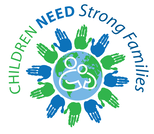|
Child sponsorship is arguably one of the most popular ways for individuals to support children in the Majority World. And it's an enormously successful fundraising strategy - according to Freeing Congregational Mission, more than nine million children are supported through international child-sponsorship programs at a cost of more than $3.29 million annually. Between 2011 - 2015, the budgets of fifteen child-sponsorship organizations traced with the Evangelical Council for Financial Accountability increased 40%.
Research on whether or not these programs really have an impact is surprisingly very thin. A 2013 study looking at the largest example of a child sponsorship model over a 10 year period did show an increase of 1.4 additional years of schooling for sponsored children, and a slight increase in the probability of salaried and white collar employment. But sponsorship programs have negative impacts as well: the research indicates that (1) they create divisiveness within families and communities (when one child or family receives and another doesn’t), (2) they can disrupt family unity (several studies have reported that parents of sponsored children feel the model reduced their authority in the home, and made them feel ashamed that a foreign donor could provide for their child better than they could). Shame is a compounding factor in keeping people in poverty - it reduces self-confidence and the sense of self-efficacy. CRC is focused on strengthening families; building their competence and confidence - so HCW and CRC started to wonder - just as we shifted the model from orphanage to family-based care for the good of the children, could we find a way to shift our sponsorship model to one that helped the parents be the heroes of their own families? More and more organizations are recognizing the concerns about child sponsorship programs, including the negative impacts on children and families, and making the risky decision to to change their program models. As the CRC reintegrated children back into families, we realized that the best way to care for a vulnerable child is to care for those who care for that child - their family. Child sponsorship places too much focus on one child in the family, creating divisiveness between those children who were sponsored within the family and those who were not. It also undermines the dignity and agency of parents to care for their children according to their values. More importantly for us - it didn’t mirror the way that the CRC now works to support and strengthen entire families and not just individual children. The CRC transitioned from the orphanage model to family based care because it’s what is best for children and families. As mission leaders and partners, we should be asking ourselves, how does our approach - including our fundraising model of child sponsorship- engage us in God’s mission to care for all of His children by strengthening families, communities, and all of those who care for children while honoring the role of mothers and fathers in a child’s life? Poverty is the number one reason why children become separated from family. Reuniting children with families and then strengthening the entire family is the best way to help them thrive with dignity, and move toward independence. Programs like HCW's Family Empowerment Advocacy (FEA) is an opportunity to provide support to families to build their capacity to care for themselves through a program that offers a hand-up rather than a handout. It’s a shift from reinforcing dependency through sponsorship, to one that empowers vulnerable families to become self-sufficient so that they can meet their own needs.
0 Comments
Your comment will be posted after it is approved.
Leave a Reply. |
Follow us on social media
Archive
July 2024
Click the button to read heartfelt tributes to a beloved Bishop, co- founder of our mission!
Post
|
Helping Children Worldwide is a 501 (c) 3 nonprofit organization | 703-793-9521 | [email protected]
©2017 - 2021 Helping Children Worldwide
All donations in the United States are tax-deductible in full or part. | Donor and Privacy Policy
©2017 - 2021 Helping Children Worldwide
All donations in the United States are tax-deductible in full or part. | Donor and Privacy Policy






